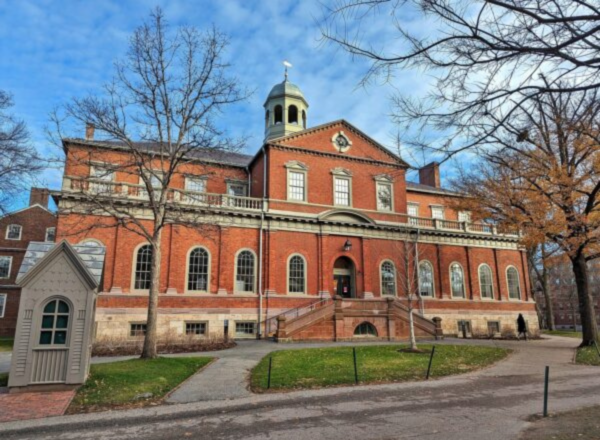Spotlight On: Kathleen Murphy, President & CEO, Massachusetts Bankers Association
 August 2023 — In an interview with Invest:, Kathleen Murphy, president and CEO of the Massachusetts Bankers Association, discussed the association’s milestones for the past year, efforts to promote financial education, how banks are leveraging technology in a safe manner, efforts to increase diversity, equity and inclusion in the banking sector and her outlook for the future of the association and the banking industry in Massachusetts.
August 2023 — In an interview with Invest:, Kathleen Murphy, president and CEO of the Massachusetts Bankers Association, discussed the association’s milestones for the past year, efforts to promote financial education, how banks are leveraging technology in a safe manner, efforts to increase diversity, equity and inclusion in the banking sector and her outlook for the future of the association and the banking industry in Massachusetts.
What have been some of the key highlights and milestones for the association over the past year?
Our association comprises 124 FDIC-insured community, regional, and money center banks in Massachusetts and New England, which hold $580 billion in deposits, in nearly 2,000 branches and employ 70,000 banking professionals. Founded in 1905, our primary purpose is to propel our members’ success in a dynamic industry and rapidly changing world as their premier partner and trusted resource. One of the key reasons individuals join our organization is our proactive focus on exceptional solutions, advocacy and thought leadership, including in the areas of diversity, equity and inclusion (DEI).
We firmly believe that our collective voice wields greater influence than can be achieved individually in effecting change. Our state operates on a two-year legislative cycle, during which approximately 8,000 bills are introduced. This year we are focused on nearly 400 bills, with about 200 of them directly impacting the banking industry and our members’ ability to serve our clients and communities. We diligently propose and support legislation aligned with our objectives.
Notably, we are working on a bill to enhance criminal penalties for so-called “note-passing” bank robbers as well as legislation aimed at streamlining the prosecution of individuals who commit check fraud. MBA also supported another bill that has been signed into law allowing certain notarization services to be conducted remotely online. We also engage on a myriad of issues from protecting consumer’s personal data to promoting renewable energy lending and solutions. Our effectiveness stems from the strong relationships we and our members have built with legislators and other key stakeholders over the years. Establishing trust and credibility as advocates requires substantial time and effort.
In addition to our advocacy work, we are supportive of key member events, like initiatives with their local non-profits, financial education, and branch openings, which often involve legislators and other policy makers.
What are some of the notable programs to promote financial education?
We have a longstanding commitment to promoting financial education, as we strongly believe that an informed consumer is a better consumer. This commitment begins at a very young age, treating financial skills as essential life skills, just like reading and math. It is crucial for individuals to understand how to engage with a trusted advisor and make informed financial decisions. In many states, financial education is a requirement for high school graduation. In Massachusetts, there are elective courses available in schools, but it is not a requirement. We have been staunch supporters of bills that advocate for financial education to be a graduation requirement.
The FDIC offers the Money Smart series, which is widely recognized as the gold standard in financial education. It provides excellent resources for financial education. Our member banks also actively sponsor financial education and training in schools, providing funding and training for teachers. In addition, some banks even have in-school branches where students can apply to work. This offers a valuable mentoring opportunity for these young individuals, in addition to first-hand experience working in a branch. Promoting and strengthening financial education is a significant priority for us. We aim to assist our members in effectively deploying resources, some through the American Bankers Association where students are educated on the importance of saving. Children in elementary and middle schools across the state participate in the annual Teach Kids to Save Day led by bankers. For high schoolers, resources cover credit-related subjects such assessing a need versus a want and the cost of credit. I had the opportunity to serve on the ABA’s Foundation Board of Directors which has a key focus on financial education. It’s important to note that our efforts extend beyond students; we also focus on individuals entering the workforce as well as senior citizens to ensure they are financially aware.
How is the Massachusetts Bankers Association aiding member banks in adapting to the evolving digital banking landscape?
We offer a wide range of training and education programs, totaling 275 programs each year. We have committees in place to understand and address the specific needs of our members, including an operations and technology committee, a commercial lending committee, and a state legislative committee, to name a few. We also partner with other organizations on training and education including a recent program with the FBI. This program covered not only traditional issues like bank robberies but also cybercrimes, which are increasingly prevalent. As part of our training and education programs, we successfully held our second annual Innovation Summit, where we featured fintech firms that partner with our member banks. We ourselves have also invested in a fintech venture capital fund that vets firms in this space, that desire to work with banks.
We serve as a key conduit to our members in collaboration with the Federal Reserve Bank of Boston, which recently launched the FedNow Service, a 24/7/365 payment platform. During its multi-year creation, several member banks were early adopter organizations for the FedNow service platform. We have provided training and education specifically focused on this new initiative. The platform facilitates real-time payments, ensuring that banks have the technology and liquidity necessary for consumers and businesses alike in today’s economy. The Federal Reserve Bank of Boston has emphasized the importance of the platform’s security infrastructure, a top concern and priority around the financial services industry. Banks and financial service providers are committed to building consumer trust, which is why banks undergo regular IT exams conducted by federal and state regulators. These exams ensure that banks have the appropriate mechanisms in place to meet proper security protocols and thresholds.
How is the association helping increase diversity, equity and inclusion in the banking sector?
Our board of directors, in January 2022, adopted recommendations from a Diversity, Equity and Inclusion Steering Committee, including a DEI strategic plan aimed at helping our member banks in achieving their DEI goals, wherever they are on the DEI continuum. We recognize the benefits of diverse organizations and strive to serve as a conduit for further diversity in the banking industry. One of our initiatives, the DEI Summit, focuses on addressing topics like unconscious bias, sharing best practices and other activities that involve collaboration with universities on promoting banking as a career.
Recently, we successfully concluded our 11th annual Women and Allies in Banking Conference, bringing together nearly 400 women and allies to empower them to succeed and achieve their goals. Allies play a crucial role in providing internal support and our organization is fortunate to have amongst its ranks a nationally recognized leader in Julieann Thurlow, the president and CEO of Reading Cooperative Bank, who will become chair at the American Bankers Association in the fall of 2023.
Two years ago, we launched a nationally registered credit analyst apprenticeship program, entering its third cohort this fall. The program focuses on developing credit analysts, the first prong in the commercial lending pipeline where many seasoned lenders are nearing retirement. Our goal is to create a fresh pipeline of trained credit analysts through a comprehensive year-long program comprising 150 hours of classroom training and 2,000 hours of on-the-job experience. The program also provides an entryway into banking for diverse candidates seeking a career that provides a family sustaining wage and job security. Participants are paid during their apprenticeships and receive hands-on experience, analyzing and presenting scenarios to commercial lenders. This immersive program has yielded positive results, with many participants receiving promotions within their respective banks.
What is your outlook for the future of the Massachusetts Bankers Association and the banking industry in the Commonwealth?
We have a strong, diverse and resilient banking industry and the outlook remains positive. Our economy is dynamic, with banks present in every community, serving consumers and small businesses. These banks actively engage with the communities they serve. They are leaders in supporting nonprofits within their communities and act as sponsors for events that foster connections with individuals seeking advice and opportunities to expand their businesses. They are well-capitalized and strive to be valuable resources for their communities.
For more information, please visit:













